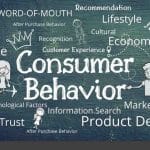Artificial Intelligence (AI) is rapidly transforming the marketing landscape, and businesses are increasingly turning to AI to drive results and stay ahead of the competition. A recent study by McKinsey shows that AI is already being used by 56% of businesses for various marketing purposes, such as personalized product recommendations, chatbots, predictive analytics, and customer behaviour tracking.
However, with the growing number of AI tools and technology available, it can be overwhelming to determine how to use AI in your marketing strategy effectively.
That’s why we’ve created this comprehensive guide on how to design an AI marketing strategy to help you harness the power of AI to drive the growth and success of your business.
So, whether you’re a seasoned marketer or new to the world of AI, you’ll find this useful.
Table of Contents
Definition of AI
Artificial Intelligence (AI) is the simulation of human intelligence in machines designed to ‘think,’ process information, and act like human beings.
AI is achieved by developing machine learning models, which can learn from large amounts of data and make predictions or take actions without being explicitly programmed. AI has become increasingly important in recent years as technology has advanced, and more organizations are using AI to automate and streamline their operations.
Definition of AI Marketing Strategy
An AI marketing strategy uses artificial intelligence to enhance marketing efforts and drive results. It simulates human intelligence to make informed decisions about marketing campaigns.
It involves understanding your target audience’s needs, desires, problems, and habits to make informed decisions about your products.
Importance of AI marketing strategy
AI technologies in marketing can enhance your productivity and performance, reducing the time and effort spent on repetitive tasks like data collection and analysis.
In addition, AI is a powerful tool for improving the effectiveness of your marketing campaigns through insights, personalization, automation, and optimization.
Read also: Is AI an essential threat to humanity
Objectives of the Guide
This guide aims to provide you with a comprehensive understanding of AI marketing strategy and equip you with the necessary knowledge and skills to design an effective strategy for your business.
This guide will cover the various aspects of AI marketing, from the basics of AI technology to the latest trends and best practices in the industry. By the end of this guide, you will have the tools and resources you need to create a successful AI marketing plan tailored to your business needs.
Types of AI in marketing
Artificial Intelligence (AI) is increasingly used in various marketing aspects. So, what are the types of AI used in marketing
-
Predictive analytics
AI-powered predictive analytics tools can analyze customer data to predict their future behaviour, helping marketers to make more informed decisions about customer segmentation, targeting, and personalized messaging.
-
Chatbots
Chatbots use natural language processing (NLP) and machine learning algorithms to simulate human conversation and provide customer support or guide customers throughout the buying process.
-
Voice assistants
Voice-powered AI assistants like Amazon Alexa, Google Home, and Apple Siri are used by brands to provide customers with information, answer questions, and even make purchases.
-
Image and video recognition
Image and video recognition are AI algorithms that enable machines to identify and classify objects and activities within images and videos. These tools can analyze and categorize visual content to help your marketers better understand consumer preferences and behaviour.
-
Natural language generation (NLG)
Natural Language Generation (NLG) is an AI algorithm that takes structured data and produces human-like text. Two famous examples of NLG algorithms are:
-
GPT (Generative Pre-trained Transformer)
A language model developed by OpenAI that can be fine-tuned for various NLG tasks, such as text summarization, question answering, and language translation.
-
BERT (Bidirectional Encoder Representations from Transformers)
Another language model developed by Google that has been used for tasks such as sentiment analysis, question answering, and text classification.
These AI algorithms can help you generate written text based on structured data, allowing you to quickly produce reports and other written materials.
Read also: Artificial Intelligence in Business: The good and the bad.
-
Personalization
Personalization AI algorithms are machine learning algorithms that use user behaviour and preferences data to deliver real-time customized experiences or content.
Two examples of Personalization AI algorithms are:
-
Product recommendations
To make personalised product recommendations, an e-commerce store can use machine learning algorithms to analyze customer purchase history, browsing behaviour, and search terms.
-
Content recommendations
Personalization AI algorithms can analyse user behaviour, including the content they engage with, and recommend similar or related content to enhance the user experience.
-
Sentiment analysis
AI algorithms are machine learning tools that analyse text to determine the emotional tone conveyed within the text.
The algorithms can help you identify whether the text is positive, negative, or neutral. They can assign a confidence score based on the level of certainty of the algorithm’s predictions.
Examples of sentiment analysis AI algorithms include:
-
Microsoft Azure sentiment analysis
Provides sentiment labels such as negative, neutral, and optimistic based on the highest confidence score found by the service at a sentence and document level.
-
Hypersense
It offers sentiment analysis that leverages machine learning to analyze text for polarity from positive to harmful by training the algorithm with examples of emotions in the reader to detect sentiment without human input automatically.
-
Social media analysis
Another example of sentiment analysis in artificial intelligence is reviewing social networks to gauge consumer feelings. Using machine learning algorithms, it is possible to search through social media posts to find mentions of your company or its products. Afterwards, emotion detection can be used to interpret the meaning behind these posts.
These are just a few examples of how AI is used in marketing and how you can apply them in your AI marketing strategy.
However, it should be noted that this list is not exhaustive, and there may be additional items to consider.
Read also: Business Reputation Management for Nigerian Business Owners
Benefits of AI in Marketing
AI improves customer engagement, targeting, efficiency, personalization, real-time insights, ROI, and messaging effectiveness in marketing.
Here are seven benefits of AI in your marketing strategy:
-
Improved customer engagement
Interact with customers in a more personalized and efficient way, whether through chatbots, voice assistants, or other AI-powered technologies.
-
Better targeting
Analyze customer data and behaviour to understand their needs and preferences better. This allows you to create more effective marketing campaigns that reach the right people at the right time.
-
Increased efficiency
Automate many routine tasks, freeing up your time to focus on strategic initiatives and allowing you to work more efficiently.
-
Enhanced personalization
Provide personalized recommendations and experiences for each customer, helping you to build stronger relationships and increase customer loyalty. Make data-driven decisions in real-time and respond quickly to changing market conditions and customer behaviour.
-
Improved ROI
Improve the effectiveness of your marketing efforts, ultimately increasing your return on investment.
-
More effective messaging
Understand how customers feel about your brand and products, allowing you to create more effective messaging that resonates with your audience.
Steps in Developing an AI Marketing Strategy
-
Identify your target audience
Identifying your target audience is essential in creating an AI marketing strategy for your business. Take some time to analyze your existing customer data to gain insights into your target audience and their behaviour.
Define your ideal customer by considering age, income, location, interests, and behaviours. Conduct market research to understand your target audience’s needs, preferences, and pain points. This may involve surveys, focus groups, or other research methods.
Use demographic data to understand your target audience better and identify any sub-segments within your target audience. Monitor social media to see what your target audience says about your brand, competitors, and the industry. Use the insights you have gathered to create a detailed customer persona that represents your target audience and their needs.
-
Set marketing goals
You must identify your business objectives to set a practical marketing goal for your AI marketing strategy.
- Define the overall business objectives you want your AI marketing strategy to support.
- Determine your target audience for this campaign, then define what you want to achieve with your brand marketing efforts.
- Analyse your current marketing performance and inspect critical metrics such as website traffic, conversion rates, and customer engagement – to determine areas where AI can help you improve.
- Based on your assessment, set specific, measurable, achievable, relevant, and time-bound (SMART) goals for your AI marketing strategy.
- Success in marketing no longer comes from scaling the top of the funnel and acquiring new customers; it’s about developing the right customers.
- Regularly evaluate your progress towards your marketing goals and adjust your AI marketing strategy as needed to ensure you are on track to achieve your objectives.
These steps can help you set clear and compelling marketing goals for your AI marketing strategy.
Learn to grow your business by joining our Whatsapp Community today.
Best AI Tools for Marketing
-
Chatbots
Chatbots are software programs that simulate human conversations using natural language processing (NLP). There are several chatbots, including virtual assistants (e.g., Alexa or Siri), customer service bots, and lead generation chatbots.
Incorporating a chatbot into your business’s AI marketing strategy can bring several benefits, including:
- Increased efficiency and productivity: Chatbots can handle tasks at a pace and scale that humans can’t match, leading to increased efficiency and productivity.
- Improved customer satisfaction: Chatbots provide instant support and answers to their questions, improving their overall experience and satisfaction.
- Time-saving: Chatbots can handle repetitive and simple tasks, freeing employees’ time to focus on more complex and essential tasks.
- Lastly, it is essential to have an attractive and user-friendly design for your chatbots to avoid frustrating customers with cluttered or difficult-to-navigate interfaces.
-
Personalized Product Recommendations
AI-powered personalized product recommendations use artificial intelligence algorithms to predict what a customer might like based on their individual preferences and the preferences of similar customers.
Incorporating AI-powered personalized product recommendations into your marketing strategy can bring many benefits, including improved efficiency, higher customer engagement, and increased revenue.
-
Predictive analytics
AI predictive analytics is a powerful tool that you can use to analyze large amounts of data and make predictions about future customer behaviour. Using advanced algorithms and machine learning techniques, AI predictive analytics can help you make data-driven decisions to improve your marketing strategy and drive better business outcomes.
AI predictive analytics is a unique tool that can help you make more informed decisions, improve your marketing strategy, and drive better business outcomes.
-
Customer behavior tracking
AI customer behaviour tracking uses artificial intelligence technology to gather, analyze, and interpret customer data to understand behaviour patterns, preferences, and buying decisions. AI customer behaviour tracking software can help you better understand your customers and personalize your marketing efforts accordingly.
-
Email marketing automation
Email marketing automation lets your business send subscribers automated, targeted, and personalized emails. It allows you to create a campaign plan, decide who it targets and the campaign’s purpose, and then use software to send emails to your subscribers automatically.
These are just a few examples of the best tools to use in your AI marketing strategy. By leveraging AI, you can streamline your marketing efforts, increase ROI, and reach your customers more effectively and personally.
To tie it all up, here’s one final piece of the AI marketing strategy puzzle, and it’s something that internet users are worried about. Privacy and security.
Ensure data privacy and security.
As a business owner, it’s important to take data privacy and security seriously when implementing an AI marketing strategy. You can conduct a data privacy risk assessment to ensure your customers’ data remains secure.
Before you start using AI, understand what data you’re collecting, who has access to it, and how it’s being used. This will help you identify any potential risks and take steps to mitigate them.
Consider applying strong encryption for all sensitive data, such as passwords and credit card information. It would help if you also considered using multi-factor authentication to protect sensitive data further.
Additionally, you have to limit access to sensitive data. Only allow employees who need access to sensitive data to have it. This will reduce the risk of data breaches and unauthorized access.
Moreso, regularly monitor how your AI system uses data and establish procedures to detect suspicious activity.
Measuring and Evaluating the Success
As Peter Drucker opined, “if you can’t measure it, you can’t improve it.”
To measure and evaluate the success of your AI marketing strategy, we recommend that you track and analyze key performance indicators (KPIs) that are relevant to your marketing goals.
Here are some common KPIs for measuring the success of your AI marketing strategy:
-
Conversion rate
This measures the percentage of people who take a desired action, such as purchasing or signing up for a newsletter, after interacting with your marketing content.
-
Engagement rate
This measures how actively people engage with your marketing content by liking, commenting, or sharing it on social media.
-
Lead generation
This measures the number of leads or potential customers that your marketing efforts are generating.
-
Return on investment (ROI)
This measures the financial return on your marketing investment by comparing your marketing expenses to the revenue generated from your marketing efforts.
-
Customer satisfaction
This measures your customers’ satisfaction level with your products or services.
Future Trends in AI Marketing
The field of marketing and artificial intelligence (AI) is undergoing rapid change and development. Based on the recent report from Statista, the market for AI in marketing was estimated to be 15.84 billion US dollars in 2022 and is projected to increase to 47.32 billion by 2025. There is an increased focus on personalisation in marketing, and AI can help personalize marketing campaigns.
Conclusion
Some AI trends in digital marketing that will continue to grow include automated customer segmentation, chatbots, and other tools that can help businesses save time and increase efficiency in their marketing efforts.
AI is expected to play a significant role in marketing, and businesses must stay updated on the latest AI trends to remain competitive.
At Insight.ng, we help to promote businesses. Reach out to us here, and we’ll do that for you. You should also subscribe to our YouTube channelto watch our upcoming webinars on how to grow your business.
About the Author
Princewill Nwandire is a tech copywriter, content strategist and ghostwriter based in Port Harcourt. When he’s not writing, you can catch him playing a game of table tennis with his friends. He’s available for blog and content writing projects.
About Author
- Op-Ed are articles published by guest authors. We no longer accept guest posts. However, we are still open to adding long-term content contributors to our team of insightful writers. To write for us, please check out inisght.ng/guest-post.
Latest entries
 Business InsightsMarch 27, 2024Effective Strategies for Managing Cash Flow in a Nigerian Business
Business InsightsMarch 27, 2024Effective Strategies for Managing Cash Flow in a Nigerian Business

 Business InsightsFebruary 12, 2024Privacy Policy for Business Websites: All You Need to Know
Business InsightsFebruary 12, 2024Privacy Policy for Business Websites: All You Need to Know

